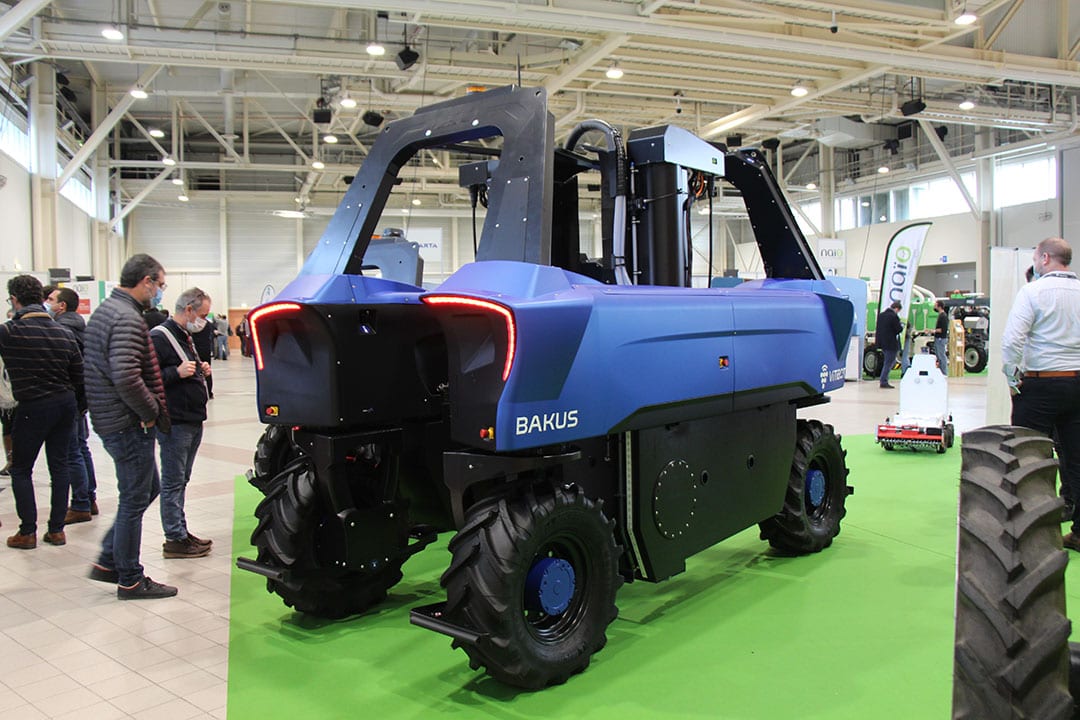First signs of consolidation in juvenile field robot market

In the still very juvenile or immature field robot market, the first signs of consolidation are starting to emerge. Some perspectives on what’s happening.
The field robot market is far from being mature and yet there’s interesting ‘battles’ being fought to secure access to technology and knowhow that enables companies to offer autonomous solutions to the market.
Autonomy is taking pace
Various reports and also practical restraints have shown that autonomy is taking pace and is happening and a speed never seen before. Key drivers are labour shortage, increased pressure on fertiliser and chemicals and last but not least, farmers’ willingness and readiness to adopt autonomous solutions. It urges tractor and machinery manufacturers to act here and now.
If Agco, CNH Industrial or John Deere acquires yet another company or startup, everybody immediately notices, of course. If you look a little closer though, you’ll notice a recent shift in strategy. Before, acquisitions were regularly carried out to take technology of the market or to at least slow down innovation to protect the companies’ other businesses. But tides have turned.
Examples are CNH Industrial who acquired Raven Industries and John Deere acquiring Blue River Technology and more recently Bear Flag Robotics, as well as its joint venture with GUSS Automation.
The acquisitions have already led to or at least contributed to the introduction of commercially available solutions. Some know that Raven earlier on acquired DOT Technology Corporation and Smart Ag to gain access to market ready autonomous solutions.
Text continues below image

Investments in field robot market
Meanwhile, other tractor manufacturers are also securing their part of the cake to not miss the boat. Claas bought shares in AgXeed on two separate occasions and Same Deutz-Fahr (SDF) recently acquired VitiBot. There’s also other acquisitions and investment that have probably gone unnoticed for many. Such as Amazone investing in AgXeed and in particular Pellenc investing in fellow French startup Agreenculture. And very recently, Maschio Gaspardo acquiring a majority share in fellow Italian startup Free Green Nature.
Some of the investments and acquisitions in the field robot market are not only resulting in stepping up in autonomy but also in stepping up in the specialty crops sector. A sector that is not only interesting from an autonomy point of view due to extreme labour shortages and repetitive work, but also from a high value crop point of view. Hence the particular interest from not only machine manufacturers but also from major tractor manufacturers that have always primarily focussed on broad acre cropping.
Text continues below image

Not just survivors in the field robot market
The above-mentioned startups and scaleups in the field robot market have managed not to get stuck in the ‘valley of death’. This refers to the stage of development between academia and commercialisation as described by the Government of the United Kingdom in a recent report on automation in horticulture.
Not every startup succeeds in passing this valley alive as it requires massive amounts of capital. Dr. Jochen Hemming, senior researcher computer vision & robotics in horticulture at Wageningen University & Research, elaborated on that aspect earlier this year.
Startups that didn’t succeed to pass the valley of death include Abundant Robotics, Cerescon and Agerris. Not a field robot but an outdoor feeding robot, Dutch manufacturer Schuitemaker recently quit the development of its Innovado feeding robot after first showing it in 2008.
And they’re not going to be the last, by far not.
Join 17,000+ subscribers
Subscribe to our newsletter to stay updated about all the need-to-know content in the agricultural sector, two times a week.
 Beheer
Beheer



 WP Admin
WP Admin  Bewerk bericht
Bewerk bericht